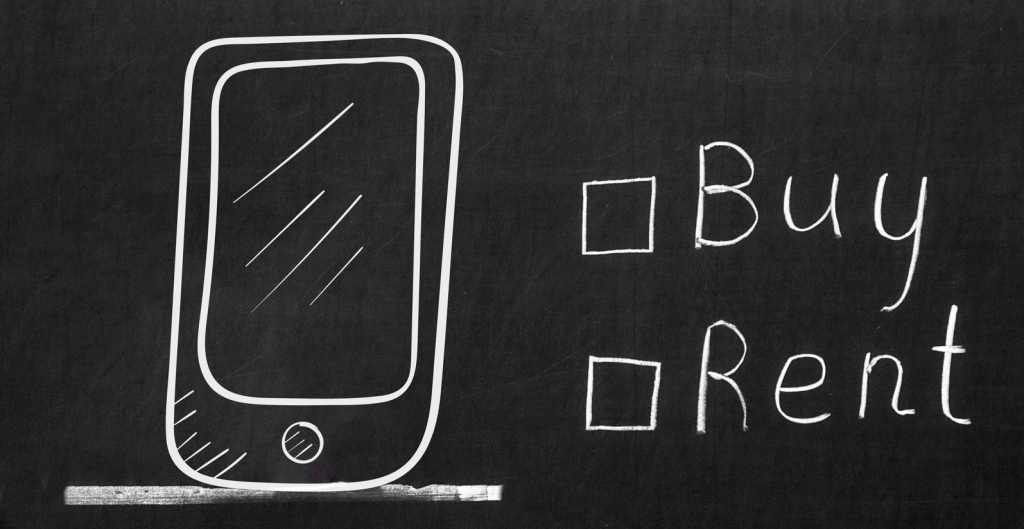Many companies provide their employees with company cell phones for mobile working. But what actually makes more sense: buying or renting? In this blog post, we take a closer look at the concept of “renting a cell phone instead of buying one”.

Economic advantages of renting a cell phone instead of buying it
Why should companies even think about renting phones instead of buying them? One of the most important reasons: Renting eliminates the high initial investment associated with buying phones. Instead, a monthly fee is paid. The big advantage, then, is that you don’t have to put down the money at once to buy devices that quickly become obsolete. Instead, you can alternatively invest the investment sum in a machine that will yield significantly more in 2 years than old equipment.
In addition, rental models often also offer the option of regularly updating the equipment. In a world where technological advances are happening rapidly, this is a key advantage. It allows companies to always be on the cutting edge of technology without having to constantly buy new equipment.
Another big advantage of renting is scalability. As a company grows and more employees are hired, additional phones can easily be rented.
Service and support
Another aspect that is often overlooked is the service and support that comes with renting cell phones. Many providers offer comprehensive support services that are helpful in the event of a defect or problem with the devices. When you buy cell phones, you are often responsible for resolving such issues yourself, which can add up in terms of time and resources.
Renting, installment plan, and leasing: A comparison
When it comes to procuring company cell phones, there are other options besides direct purchase and rental, such as installment plan and leasing options. But how do these models differ?
With lease-purchase, the company acquires the cell phone after a fixed lease period by paying the sum of the rent paid and a final payment. This can be advantageous if you want to eventually own the equipment without having to make a large initial investment. However, this option is often more expensive than renting alone, since the cost of acquiring ownership is added to the rent. In addition, with a lease-purchase, you are usually tied to the equipment for a longer period of time and cannot react as flexibly to technological advances.
Leasing is similar to renting in that regular payments are also made for the use of the equipment. The main difference is that with leasing, the equipment can often be returned at the end of the term or exchanged for a new model. This allows for constant updating of technology. However, leases can often be more complicated and less flexible than rentals, and there may be additional costs, such as for damage beyond normal use.
Overall, the “rent a cell phone instead of buying” model offers a high degree of flexibility and cost efficiency, especially when compared with installment plan and leasing options. It allows easy access to up-to-date devices without long-term commitments or high costs. As a result, it can be a particularly attractive option for companies that want to stay on the cutting edge of technology while controlling their costs.
Conclusion
The “rent a cell phone instead of buying” model offers numerous advantages for companies. Cost efficiency, flexibility, up-to-dateness of the devices and the included support allow companies to work effectively and ensure they are always up to date with the latest technology. It is therefore worth considering whether renting company cell phones is the better choice for your company.
By the way, another very important note: No matter whether you decide to rent or buy: In any case, business cell phones should be managed via an MDM system in compliance with data protection regulations.
And check out our other article Company cell phones: 9 points that companies should definitely consider